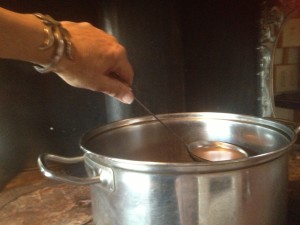Who We Are
Last month’s post “Anglo Sisters” brought a comment I was not expecting. After taking liberties with women from Texas, I was sure I would get a response or two from that corner, but not a one. Instead I received a thought provoking message from a cousin. She and I share a great great grandmother who was Dakota and Ojibway, and she began with a question: How do you think your ancestors would feel if they knew that you were totally denying your Indian heritage?
I was stunned. I would never deny that heritage. I honor and treasure it, and share it when appropriate. Did it occur to me to mention it in “Anglo Sisters”? No. That was a story about identifying with a culture that is not yours, and learning to identify with the one you were born into. I identify myself as Anglo, I was raised Anglo, I am seen as Anglo, I have had all the advantages of being Anglo. I am not hiding all the other ancestors that contributed to my particular being; they are making themselves known in ways I cannot imagine. But most of the time the fact that I have an Indian great great grandmother is not relevant. And especially here in the southwest I am hypersensitive to the danger of appearing to be part of the “wannabe” tribe, those who have a trace (or not even) of Indian blood but who “wannabe” native and masquerade as a tribal person.
So, end of subject? Of course not. I continue to muse on this question of who we are, who we appear to be, and how to be honest with ourselves and others. Why did it not occur to me to mention my Indian ancestor in “Anglo Sisters”? Was I really in denial? Did I sacrifice the truth of my identity for the sake of a good story? I can defend myself on all these points, but still the questions are worth asking. (more…)
Read More



 He was a well-dressed utility company executive in his early forties and he was walking in my direction. I had hoped for a little peace and quiet during my lunch break in the cafeteria, before the negotiation resumed and I would have to take up my mediator role again. But he was heading toward me, and he looked concerned.
He was a well-dressed utility company executive in his early forties and he was walking in my direction. I had hoped for a little peace and quiet during my lunch break in the cafeteria, before the negotiation resumed and I would have to take up my mediator role again. But he was heading toward me, and he looked concerned.
